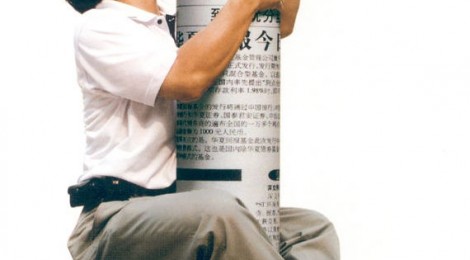
New Rule for Media in China: what to expect?
After touring China’s three leading news providers, People’s Daily newspaper, Xinhua News Agency, and China Central Television (CCTV) last Friday, Chinese president Xi Jinping presided over a symposium, taking the chance to address national media and journalists.
Xi, who is also General Secretary of the Chinese Communist Party (CCP) Central Committee, said the Party’s media work should “guide the public, serve the country’s overall interests, unite the general public, instil confidence and pool strength, tell right from wrong and connect China to the world.” As reported by People’s Daily, Xi highlighted the need of “maintaining a high level of uniformity”, and of achieving “love of the Party, protection of the Party and acting for the Party”, which some observers called a neologism of the president, and therefore expected to enter the country’s dominant discourse. Both these expressions convey the sense of urgency about the need for the media to fall in line with the leadership. Xi also emphasised that the Party’s news and public opinion work is an important task for the Party, that it is a major matter concerning the management of national affairs and the maintenance of national peace and stability.

Xi’s statements come after the approval, on 15 February, of new rules governing foreign-invested media in China. Coming into effect from the 10 of next month, the new regulations have been issued by the Ministry of Industry and Information Technology in conjunction with the State Administration of Press, Publication, Radio, Film and Television (SARFT), which both fall directly under control of the Communist Party’s State Council.
According to some, unlike few alarmist headlines predicted, the rules do not imply that all foreign media will be banned from publishing online in China. But the common belief is that regulations will most probably put foreign media companies and tech companies under more scrutiny and pressure. They set strict new guidelines for what can be published online, and how publishers should conduct business in China. All content – ”text, maps, games, cartoons and audio files” – need to be hosted on servers located within Chinese borders. Moreover, any online publication service unit needs to get prior approval from SARFT, if it wants to cooperate on a project with any foreign company, joint venture, or individual.
Jeremy Goldkorn, director of Danwei, a research firm tracking Chinese media, said the rules do not represent real news, cause “foreign media have never been able to operate freely in China.” Moreover, global news companies often publish on servers outside China, therefore will unlikely be affected by recently introduced regulations.
Probably the impact of the new law will depend on how Chinese authorities implement it, defining how restrictive it is. Beijing in the past has put forth sweeping regulations, but selectively enforced them. The latest could affect almost anything that’s published online in China, but it is unclear where China will focus its efforts. Until present, some foreign companies have exploited grey areas in the Chinese regulations to publish content in the country, but they might not be able to do so anymore starting from next March.
Previous CCP leaders have also stated their media policies: Jiang Zemin introduced the notion of “guidance of public” (舆论导向yulun daoxiang), implying that media control is essential to maintain social and political stability. Hu Jintao slogan was “channelling of public opinion”, with clear reference to the fact that the Party was supposed to cover breaking news events, and better exploit the resources of commercial media and the Internet to enforce the Party’s agenda. Xi Jinping has just stated his media policy, which was encapsulated by some analysts in the hard-line phrase “public opinion struggle,” (舆论斗争yulun douzheng).




